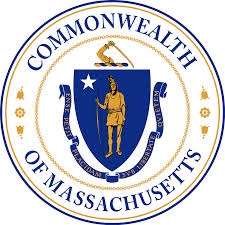The Boston Globe reported Saturday
Jon Hurst isn’t afraid to take a stand. As president of the Retailers Association of Massachusetts, it’s his job to fight for the interests of the 4,000 businesses he represents.
But when it comes to legalizing marijuana, he’s torn — as are many leaders of Boston-area business groups.
“How can you separate your own personal feelings and experiences from the economic and political concerns?” Hurst said, acknowledging that he indulged a few times as a college student in the 1970s. “It’s unlike anything I’ve dealt with in 25 years in this business.”
The campaign for a state ballot initiative that would allow the sale of marijuana to adults had little organized opposition until Thursday, when Governor Charlie Baker, Boston Mayor Martin J. Walsh, and House Speaker Robert A. DeLeo launched a political organization to defeat it. But so far, it seems they’re unlikely to get the active backing of the Retailers Association and other business groups, whose money and numbers could give the opposition more political muscle.
Essentially, business leaders said, their members are just not that worked up over the initiative — pro or con.
“To be real honest, I haven’t spent any time thinking about this,” said James Rooney, chief executive of the Greater Boston Chamber of Commerce. “It’s just not something that has created any amount of focus among my members or the larger business community.”
So far, just one major statewide business group, the Associated Industries of Massachusetts, has decided to oppose the measure.
“Our concerns are twofold,” said Chris Geehern, AIM’s executive vice president of marketing and communications. “On-the-job impairment, particularly at trucking and construction companies, and businesses getting caught in the netherworld between state law that permits [marijuana] use and federal law that prohibits its use.”
But the leaders of other groups representing thousands of businesses, including Hurst’s and Rooney’s, the state chapter of the National Federation of Independent Business, and the Alliance for Business Leadership, said their members have other priorities and are likely to stay on the sidelines, despite sharing some of AIM’s concerns.
In contrast, a ballot initiative that would lift the statutory cap on charter schools is strongly backed by a coalition of business groups, including AIM and the Boston Chamber.
Opponents of legalization said that while business groups might not fight the measure, none is likely to endorse it either.
“The fact that business associations are not supporting commercial marijuana contradicts the industry’s arguments that it is good for the Massachusetts economy,” said Corey Welford , a spokesman for the newly formed opposition group, Campaign for a Safe and Healthy Massachusetts.
The marijuana initiative proposes legalizing sales to anyone older than 21 beginning in January 2018. It would also enact a tax on sales of cannabis products and create regulations that would be enforced by a newly formed Cannabis Control Commission. Proponents are gathering signatures to place it on the ballot in November.
Recreational marijuana is legal in four states and the District of Columbia; a number of states, including California and Nevada, are poised to vote on recreational marijuana this year. If adopted in Massachusetts, proponents claim the industry would eventually generate $1.1 billion in annual sales.
The Retailers Association conducted an informal poll of its members and found that 60 percent want the group to oppose the ballot measure. But, Hurst said, many of those same businesses admitted legal marijuana would probably not hurt their bottom line and could even help the state’s economy. Meanwhile, nearly a quarter of his members called for the association to endorse legalization, with some predicting it would actually boost their profits.
Lacking a clear mandate, and with polls of voters showing the initiative will probably succeed, Hurst said his group will “probably stay neutral.”
“Even if we oppose it, I doubt we’d be out raising money or doing speaking engagements like we have on other initiatives.”
The Massachusetts chapter of the National Federation of Independent Business, which represents about 8,000 small companies, also expects to stay out of the fray.
“I call my small businesses the ‘leave me alone’ coalition,” said Bill Vernon, the group’s director and a former Republican state representative. “I think you’ll see they have a libertarian view” on marijuana.
Vernon said he holds conservative values and is thinking about voting against the measure. On the other hand, he noted he attended college from 1969 to 1973, and that while he himself has never smoked, “I’m a product of my age: ‘Live and let live and let people do what they want.’ ”
At the Boston Chamber, Rooney said he is personally leaning against legalization, but sounded nothing like a strident opponent. And he’s barely heard a peep from his 1,500 members about it.
If the measure passes, Rooney said he would probably welcome marijuana businesses into the chamber.
“Over time, if [marijuana] is a legal form of business and they want to join, why not?” Rooney shrugged. “In fact, it may be a good thing. What happens in organizations like ours is a great deal of dialogue and an exchange of ideas, interests, and concerns. That’s the right approach.”
Read the full report at
https://www.bostonglobe.com/business/2016/04/15/seo-hed/VZBtsy9Vp4S7beLRUzos7O/story.html

















